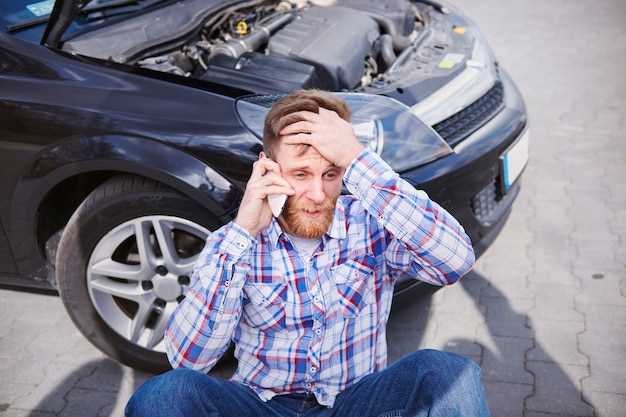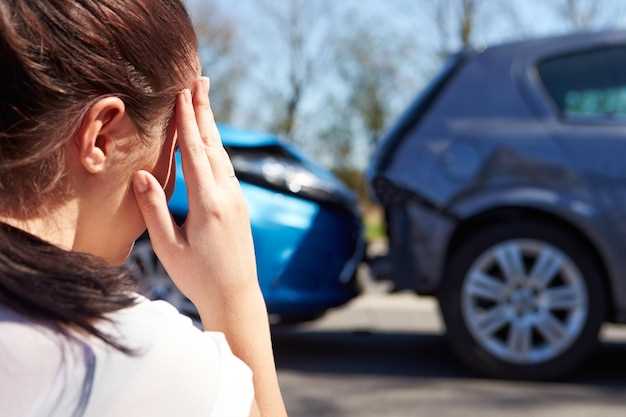
Experiencing a car accident can be a traumatic and confusing event. In the aftermath, your safety and well-being should be your top priority. Understanding the essential steps to take can help ensure that you manage the situation effectively and protect your rights.
Immediately after an accident, it is crucial to assess the scene for safety. Ensure that you and others involved are out of harm’s way before taking any further actions. Contacting emergency services should be one of your first steps if there are injuries or significant damage. Prioritizing safety in these moments can prevent further accidents and injuries.
Once the immediate danger is addressed, gather all pertinent information. This includes exchanging details with the other driver, documenting the scene, and taking photos of the damage. Being thorough in your documentation can be invaluable later on when dealing with insurance companies or legal matters. Moving forward, knowing how to navigate the complexities of post-accident procedures will empower you to protect yourself effectively and ensure a smoother recovery process.
Ensure Personal Safety and Call for Help
Immediately after a car accident, your first priority should be to ensure your safety and the safety of others involved. Check yourself for any injuries and assess the condition of your passengers. If you or anyone else is injured, do not move until medical help arrives, unless there is a risk of further danger, such as fire or traffic.
If it is safe to do so, move your vehicle to the side of the road to prevent further collisions and to allow emergency responders to reach the scene easily. Turn on your hazard lights to alert other drivers. If your car cannot be moved, stay inside with your seatbelt fastened until help arrives.
Next, call for help by dialing emergency services. Provide them with clear information about the location of the accident, the number of vehicles involved, and any injuries. Remain on the line until the operator tells you to hang up. If you are unable to call, ask a bystander for assistance.
While waiting for help, if it is safe, document the scene by taking pictures of all vehicles involved, any damages, road conditions, and visible injuries. This information can be vital for insurance claims and legal matters later.
Document the Accident Scene for Insurance Claims

After a car accident, documenting the scene is essential for a successful insurance claim. Begin by ensuring everyone’s safety and then proceed to gather evidence. Start with taking clear photographs of the vehicles involved from multiple angles, ensuring to capture any damages. Include wide shots that show the context of the area, such as road conditions, traffic signs, and nearby landmarks.
Next, record the details of the accident, including the date, time, and location. Note the weather conditions, visibility, and any other factors that may have contributed to the incident. If possible, sketch a diagram of the scene to illustrate the positions of the vehicles before and after the accident.
Collect information from all parties involved, including names, contact details, insurance information, and vehicle registration numbers. Speak with witnesses and obtain their contact information, as their statements can be invaluable to your claim. Take notes of their accounts, focusing on what they saw regarding the accident.
Additionally, ensure you file a police report if applicable, as this document can serve as an official record of the incident. Obtain a copy of the report for your records and to share with your insurance company. This comprehensive documentation will strengthen your case and help facilitate a smoother claims process.
Follow Up with Medical Care and Legal Advice

After a car accident, ensuring your health and legal rights are protected is paramount. Here are essential steps to take regarding medical care and legal advice:
Medical Care
Regardless of the severity of the accident, following up with medical care is crucial:
- Seek Immediate Medical Attention: If you haven’t already, visit a healthcare professional to assess any injuries. Some conditions may not be immediately apparent.
- Document Your Injuries: Keep detailed records of your injuries, treatments, and any medical advice given by professionals.
- Follow Prescribed Treatment: Adhere to any recommended treatment plans, including medication, physical therapy, or follow-up appointments.
- Keep All Medical Records: Maintain copies of your medical records, bills, and receipts for future reference and potential claims.
Legal Advice
In addition to medical care, obtaining legal advice is vital to navigate the aftermath of a car accident:
- Consult a Personal Injury Attorney: Engaging a lawyer who specializes in car accidents can help you understand your rights and options.
- Gather Evidence: Collect all relevant documentation related to the accident, including police reports, photographs, witness statements, and insurance information.
- Understand the Claims Process: Your attorney can explain how to effectively file a claim with your insurance company or the at-fault party’s insurer.
- Evaluate Settlement Offers: Be cautious when considering offers from insurance adjusters. Make sure to consult your attorney before accepting any settlements.
Prioritizing both your health and legal rights can significantly impact your recovery and peace of mind after an accident. Taking these steps ensures you receive the support you need during this challenging time.





